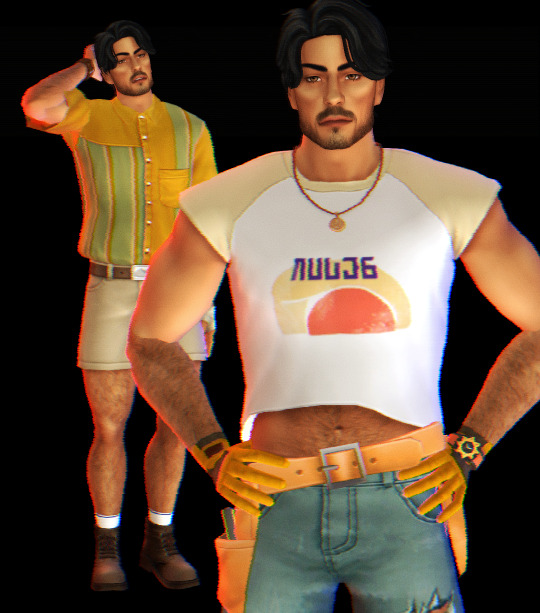#the strain tv show
Text


wip from 2023 that im finally gonna start working on
#my art <3#art#hannibal#nbc hannibal#hannibal lecter#hannibal tv#hannibal fandom#will graham#hannigram#murder husbands#hannibal nbc#hannibal fanart#hannibal tv show#hannibal the cannibal#my art#artists on tumblr#bright colors#tw eyestrain#eye strain#cw bright colors#cw eye strain#eyestrain warning#drawing#art wip#wip#current wip#my wips#work in progress#wip art#urban beasts au
63 notes
·
View notes
Text

#loved this show#not my gif#h20 just add water#mermaids#mermaid character#mermaid fantasy#mermaid#mermaidcore#mermaid legend#mermaid love#mermaid life#blingee#claire holt#cariba heine#phoebe tonkin#emma gilbert#rikki chadwick#cleo sertori#2000s nostalgia#web find#internet find#2000s web#2000s internet#old internet#old web#00s nostalgia#00s#2000s tv shows#2000s#eye strain
53 notes
·
View notes
Text

#tv series#tv shows#polls#the strain#corey stoll#david bradley#kevin durand#2010s series#us american series#have you seen this series poll
25 notes
·
View notes
Text

ÉLITE (2018–2024): Trashy, high-gloss Spanish soap opera about students at posh private high school Las Encinas, initially a mix of rich brats and social-climbing scholarship students, whose conflicts result in murders, near-fatalities, and mysterious disappearances: Each of the first five seasons is framed by a police investigation of the latest casualty, a gimmick that really only works in the first season (where it provides a degree of narrative structure and gravitas that would otherwise be lacking).
Even in its best moments, the show's relationship to reality is never strong, and it's sometimes rather witlessly hypocritical (for instance, the narrative is capable of recognizing the injustice of the school forcing Palestinian scholarship student Nadia (Mina El Hammani) to remove her hijab in class, but not enough to not indulge in its own array of islamophobic cliches in its depiction of Nadia's conservative working-class family). Nonetheless, the show gets by for a surprisingly long time on the strength of its cast and direction, buoyed by a welcome refusal to descend into self-mockery even when the plot leaves the rails. None of the male characters is especially endearing, with Itzan Escamilla (as scholarship student Samuel) becoming particularly insufferable and Miguel Bernardeau (more recently the lead on the disappointing 2024 ZORRO show) a little too convincing as rich dickhead Guzmán, but the girls are consistently more interesting, with Mina El Hammani (as Nadia), Ester Expósito (as morally compromised aristocratic rich bitch Carla), and Claudia Salas (as the salty Rebeka, whose mother is a drug dealer, and who ends up one of the show's most genuinely sympathetic characters) making the strongest impressions.
It's not until the sixth season, with all the original cast gone (several of them feet-first), that ÉLITE starts to feel like it's overstayed its welcome, with some flailing attempts to examine serious themes like abusive relationships tripping over the increasingly orgiastic celebration of wealth and privilege (any interest in characters who aren't filthy rich having departed with the last stragglers from the original cast). Although more visually stylish, it feels like it's become a different, much weaker show, and the writers seem to no longer grasp the distinction between "entertainingly messy bitches" and "grating assholes who are no fun to watch"; by the seventh season, there isn't a single character interesting or sympathetic enough to sustain the plot's frequent lurid detours into cloud cuckoo land. (It does at least have the decency to throw one of its most hateful recurring characters off a roof at the end, which I appreciated.)
The forthcoming eighth season will be the last, but Season 7 was already at least two too many, IME. CONTAINS LESBIANS? One of the boys from the early seasons has two moms, but while there are a surprising number of acknowledged mmf and mmm triads, it's not until the fourth season that there are really any wlw relationships among the principal characters, and they always remain distinctly secondary to the boys. VERDICT: More enjoyable than it has any right to be, at least for a while, but its watchability begins a marked decline after the fourth season, and the sixth and seventh seasons are no longer much fun even as trash TV.
#teevee#hateration holleration#elite#miguel bernardeau#ester exposito#mina el hammani#maria pedraza#itzan escamilla#aron piper#claudia salas#yes i did watch seven seasons of this dumb show in four days why do you ask?#s06 was a strain and i nearly dropped out of s07#but the rest was better than some of the bad tv i've seen lately#like the regime or mr and mrs smith or das signal jfc#and i'm still mad about constellation#which i had foolishly thought would actually be good
3 notes
·
View notes
Photo





The Strain (2014 – 2017) Season 02 Episode 02 “By Any Means” Directed by T.J. Scott
#thestrainedit#horroredit#tvedit#gifs#the strain#by any means#t.j. scott#my gifs#the strain season 2#tv show#blood#gore tw
166 notes
·
View notes
Text

Mister mop is fun to draw
69 notes
·
View notes
Text


@buglaur, some radical 90s clothes | "welcome to another episode of your dad's garage, i'm so glad you joined me today. grab your tools, and let's learn something together."
#i'm so sorry this took me so long fhjfjd#ts4#ts4 edit#ask meme#sim: daniel#buglaur#oh ym god this one is just perfect!! thank you sm ahhh#i figured i owed it to daithí to show him who he was watchin in all those tapes#look @ this unscarred hunka junk!!!#i imagine dan had popularity on tv in the late 80s/early 90s so#he's like nebulously 25/30 here??#fresh offa living in his car#also i firmly believe he will rock the b-horror movie camp counselor daisy dukes until he dies#dan in the shop: cover your skin make sure youre safe#dan on the street: what if i just made it Heaux#tw eye strain#???#idk i tried to make a vhs effect
72 notes
·
View notes
Text

Happy Birthday David 🥳🎂🎈🎁🎉
April 17,1942
Buon Compleanno 🥳🎂🎈🎁🎉
17 Aprile 1942
#david bradley#actress#world cinema#cinema#movies#film#tv shows#90s movies#2000s movies#harry potter movies#argusgazza#harry potter fandom#games of thrones#the strain#britannia#les miserables#afterlife#pinocchio#celebrity#happy birthday
3 notes
·
View notes
Text
A piece for @partycoffin to celebrate Father’s Day (I know they’re not related but they look really similar and I had to get it out as a painting)

#my art#welcome home#wh wally#wally fanart#wally darling#dhmis#dhmis tv show#don’t hug me i’m scared#puppets#horror#art#tw eye strain#graphic art#graphics#yellow guy#my artwork#procreate#linelessdigitalart#lineless style#happy fathers day 2023#happy father's day#happy family
17 notes
·
View notes
Text
Social justice, shipping, and ideology: when fandom becomes a crusade, things get ugly
by Aja Romano for Vox
“Shipping is as old as fandom itself. But traditionally, fans never expected their particular pairing to "become canon" — that is, to officially happen on a show or in a storyline. In modern fandoms, however, fans of movies and TV shows often root for their ships to become canon the way sports fans root for their teams. If the football fans’ goal is to see their team win the Super Bowl, the shipper’s goal is to see their ship "win" by entering the narrative as an official storyline.
These shippers collectively form group narratives about their favorite ship. More and more, these group narratives are evolving into unshakable belief systems that usually take one of three increasingly common forms:
1) The belief that the ship in question is unquestionably going to become canon
Historically in fandom, liking a ship meant just that: You liked a ship. Anything more than that would get you a lot of side-eyeing. In the Harry Potter fandom, the advent of Ron and Hermione becoming a couple in the sixth book led to a very famous (and still ongoing) meltdown among Harry/Hermione shippers.
At the time — fandom in 2005 — their unwavering faith that Harry/Hermione would eventually become canon was widely seen by fandom at large as extreme, because shipping was typically viewed as something that existed outside of canon and generally had no particular relationship to the course of canon at all.
Today, expecting your ship to become canon is more or less the norm. But there are lots of complications with this line of thinking. Even if a ship does become canon, it might not become canon in a way that fans like — Buffy/Spike, anyone? And of course it might not be guaranteed to remain canon. Breakups happen, actors leave shows, and, as The 100 fans were brutally reminded earlier this spring, characters die.
Serial narratives are fueled by drama, and they often create that drama by shaking up character relationships. Happily ever after is a rarity for couples in fictional stories, at least while they’re still in process. But fans pushing for their ships to become canon are typically looking ahead to what they call "endgame" — they believe that when all is said and done, after all the drama, their ship will, essentially, be the one that comes out victorious. Generally, they consider any alternative to be unpardonable.
Clinging to this kind of all-or-nothing view of a character pairing is, in general, a recipe for massive disappointment.
2) The belief that the ship should become canon because it involves an underrepresented identity
Fans of ships involving queer characters, characters of color, disabled characters, and other drastically underserved identities often lobby creators to acknowledge and embrace the validity of their ships. They frequently cite the sad but widely observed fact that characters who fall within these underserved identities rarely get to have meaningful canonical relationships written about them.
The problem with explicitly linking shipping to this kind of political platforming and social justice activism is that these arguments are often self-serving — that is, they’re more about having a specific ship become canon than about achieving social progress.
#GiveCaptainAmericaABoyfriend is a recent fandom trend directed at Marvel creators, but even though many Avengers fans have used it to advocate for general queer representation in the Marvel universe, the vast majority have used it to advocate for a specific ship — Stucky, or Steve/Bucky: Captain America shipped with his lifelong best friend.
Conflating ships that involve underrepresented identities with the desire for inclusion gets especially dicey when it leads fans to prioritize support for their ship over other intersectional concerns. For example, in Teen Wolf fandom, fans of the "Sterek" ship (Derek/Stiles) have frequently accused the show of "queerbaiting," or exploiting their specific queer male pairing without any intention of following through on it — even though the show’s creator, Jeff Davis, is a gay man who has already inserted several queer relationships in the show’s storylines, and even though Sterek, as it currently exists within canon, is a physically abusive relationship.
The prioritization of a ship at the expense of other intersectionality concerns is also present on The 100, which earlier this year featured a queer canonical relationship between main character Clarke and the warrior queen Lexa, a.k.a. Clexa. Clexa fans have been so focused on advocating for Clexa — even after the ship effectively ended with Lexa’s untimely death — that they’ve come under fire for ignoring the many elements of the show that some fans feel are racist and problematic.
In these and many similar cases, one might wonder if a given show’s overall progressiveness matters less to ideologically driven shippers than the ship itself.
3) The belief that the ship is already canon but the creators are unable or unwilling to confirm or admit it
This belief argues that the people in charge of the narrative are deliberately concealing the "truth" about a relationship. Because it involves an official cover-up, this particular ideological thread is particularly well-suited to ships involving real people (real person fiction, or RPF) and ships involving fictional queer characters. It almost always escalates into outright fandom conspiracies, especially if the ship involves a (perceived) real-life relationship between two same-sex celebrities.
Perhaps the most notable example of this kind of deep fandom conspiracy is the great Larry Stylinson conspiracy in the One Direction fandom, followed by TLJC in the Sherlock fandom and swaths of conspiratorial RPF shippers in numerous other fandoms, from Supernatural to Twilight to The X-Files.
The obvious problem here is that, like all good conspiracy theories, those built on the insistence that a pairing is real but secret are designed to explain away every contradictory bit of "evidence" that a pairing isn’t real. And like all conspiracies, this level of shipping can lead to hardcore, alienating belief systems.
Ships often involve a combination of these three basic branches of belief. For instance, Harry Potter’s Harry/Hermione shippers believed their ship represented a philosophical approach to love and Harry Potter as a whole. And Sherlock’s Johnlock conspiracists consistently point to the progressive nature of their ship as a reason for its inevitability. As one fan put it, "What a minority of LGBTQIA viewers label as ‘queer baiting’ is but a tool that serves the slow narrative of how Sherlock Holmes and John Watson finally end up in a relationship."
Of course, combining these three ideological strains serves to make the overall shipper ideology that much stronger — and that makes interactions within and between different ideologies that much more fraught.
When shipping is treated as an ideology, it creates deep tensions between fans and creators
These days, because so many fans treat shipping as a serious matter of urgency, they tend to approach the fan-creator divide feeling utterly justified in their belief that a ship will be or should be canon. Yet creators and writers generally have no idea what kind of belief system has amassed around a ship until members of that ship approach them to try to discuss it.
When a single fan or a group of fans tweet at creators asking whether a ship will become canon, creators generally aren’t aware of the tremendous amount of background attached to said ship — the thought, speculation, love, emotional investment, and collective justification that has gone into a fandom’s perception of a pairing.
Creators and other cast and crew members who interact with fans tend to get asked basic questions like, "Will this ship be endgame?" But most can't answer, and often don't even know, because of the many factors involved in producing a storyline.
In other words, the creators are seeing only the tip of the iceberg that is a fandom's investment in a ship, and fans are seeing only the tip of the iceberg that is the behind-the-scenes production of the canonical storyline.
Add in the fact that both fans and creators usually believe they can see the whole iceberg, and the result is inherent miscommunication. Fans might come away feeling like creators are being evasive or brushing off their need to have their ship to be canon; creators might come away feeling like fans are placing too much emphasis on a single aspect of the plot at the expense of everything else they’re trying to do within a storyline.
This disconnect can lead to feelings of resentment on both sides. It can also lead to creators accusing fans of wanting to control their narratives.
The rise in ideological fan beliefs is less about control and more about equal partnerships
The modern state of fandom involves an uneasy imbalance between fans and creators. The two groups both encourage each other creatively but lack a mutual partnership and mutual understanding of how fans’ collective creation might contribute to a storyline.
Though it would have been taboo in the past, fans who engage with creators in 2016 tend to assume they’re on equal footing with those creators, thanks to their role as active consumers of the narrative: Here is what we want your TV show to do for us, the paying customers who watch it.
But creators tend to engage with fans via a top-down approach. They are still viewing themselves as the powers that be, the ones in control, even if the fans aren’t. This is how we wind up with the kind of supreme disconnect between fans and writers like the one that has existed between Supernatural and its fan base for most of the show's interminable run on air: A substantial number of the show’s fans are collaboratively creating a vision of a completely different show than the one being produced in the writers’ room.
It's possible that shipping as ideology has arisen in part because of these imbalanced power dynamics with creators. After all, if you’re worried the creators won't listen to you, or won’t consider what you have to say as equivalent to their own opinion, what better way to justify what you have to say than to package it not as once-shameful fan desire, but as ideology?
It’s easy to stand back from fandom and point to shipping behavior as a hallmark of fan entitlement. But it would be far more accurate to say that shipper ideology is ultimately about fans trying to find a way to gain equity with creators, to work with them in a tacit collaboration.
There’s no easy answer to this dilemma, but awareness is a start
For creators who are winging their interactions with fans, knowing when a ship has become a collective fandom ideology, and why, might help give you a bit of autonomy from your fandom. At the very least, it might help you remain neutral in your presentation of various ships and plot points and avoid unexpected pitfalls.
Meanwhile, for fans feeling fatigue over an embattled struggle to make a ship canon, and the crushing disappointment of setbacks or failure, it might help to remember that ships don’t have to be canon in order to be transformative and meaningful on both a personal and cultural level. Look at Star Trek’s Kirk/Spock: that ship never became canon, but it remains one of the most compelling ships ever created, and within canon it gave us one of pop culture’s most enduring symbols of love — their hands touching through the glass.
Henry Jenkins famously said that queer fanfiction "is what happens when you take away the glass." And, sure, it’s increasingly possible that savvy creators might go ahead and take away the glass for us. But that doesn’t negate the power of fans being able to do it on their own, without anyone’s help.
Shipping is exciting, fun, and often a progressive and empowering experience. And if a ship ultimately becomes canon, so much the better. But when shipping becomes an ideology, tantamount to a religion, it makes a story’s creators pretty much tantamount to gods. In essence, even though that level of shipping may grow out of a wish to maintain parity with creators, it’s ultimately de-empowering to fans, making them dependent on creators for validation.
But fans are validated through their love for the source material; they’ve never needed more than that. Turning that source material into a game to be won only turns all involved players into winners and losers.”
#long post#fandom problems#i've been having a lot of feelings the past month or so about shipping and modern tastes#ever since the release of heartstopper#which i found to be a horrendous and gimmicky netflix rainbow flag cash grab#with stilted performances and absolutely zero nuance#and everyone's obsession with it has had me feeling so lonely#alongside a real alienation from tv and movie critics positive reviews for these basic-ass gay films and shows#there's a certain strain of fandom that obsesses over ships and the reproduction of familiar tropes without any subversion#and they don't seem to have any interest in anything beyond that#except maybe a weak pop feminist take#which is fine i guess#and that strain did free me to focus on my emotional experiences to stories that opened the whole world up to me#but i also need and relish the motifs and themes and craft and philosophies that go into a work#i love to start to understand my emotional reaction and where it came from#and experience feelings from stories beyond *squeeeeee*#and there's so little of that work in fandom#It makes me want to go into academia but i honestly doubt it would be any better and I really don't want to write papers professionally lol
79 notes
·
View notes
Photo

#Saul#Saul Goodman#BetterCallSaul#Better Call Saul#Breaking Bad#BreakingBad#SaulGoodman#Goodman#twins#brothers#hermanos#Salamanca#Mafia#Danger#Car#Desert#strain#show#TV Show#Walter White#Heisenberg#Traje#Suit#Suits#Mexican#Mexico#Drugs#Drogas#Desierto#Autos
33 notes
·
View notes
Text

First typo spotted
#paradise positive LMFAO#if yall can track down a copy of parasite positive though i would recommend it#it's about a vampire whose particular strain of the illness is mild enough to let him work as a vampire hunter wants to be a tv show so bad#and unfortunately i find bureaucracy in sff SO funny. fill out the forms boy#zahro reads midnighters 1#*it wants to be a tv show so bad. i do not believe the protagonist wants to be in a show
1 note
·
View note
Photo

#the strain#tv shows#Guillermo Del Toro#chuck hogan#illustration#vintage art#alternative movie posters
18 notes
·
View notes
Text

I started watching the strain and the only characters I like are Quinlan and Gus so here’s a lil Gus and a screenshot redraw from the show

8 notes
·
View notes
Text
Literally so fucking mad Warrior Nun was cancelled I could scream. I feel like we're living in hell. Every good tv show gets cancelled for no real reason after one or two seasons because these streaming platforms are a fucking SCAM. I haven't finished season two yet because I've been so busy but I'd bet it doesn't wrap up. This is why I don't watch stuff before it's cancelled; there's no point in investing in anything.
#the worst part? tv is literally the only entertainment I have#as much as I love to read I physically can't after veing on the computer 12+ hours a day#the eye strain is quite literally too much#we live in capitalist hell and it's fucking exhausting#like how to people find joy in literally anything#I have not a single thing that brings me joy lmao#I used to love tv shows and found a lot of joy in them but that's a thing of the past and has been for a long time#how is everyone not totally fucking exhausted honestly
2 notes
·
View notes
